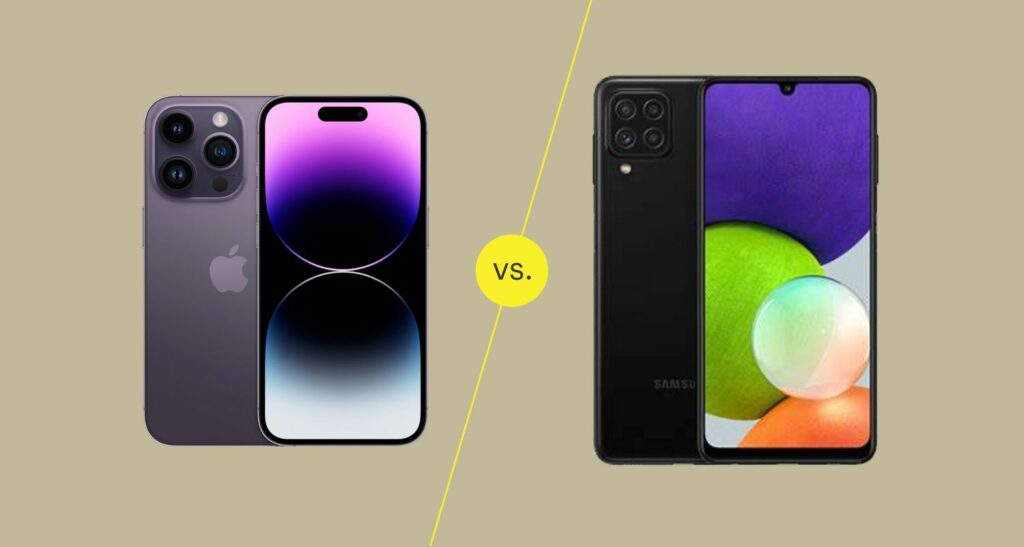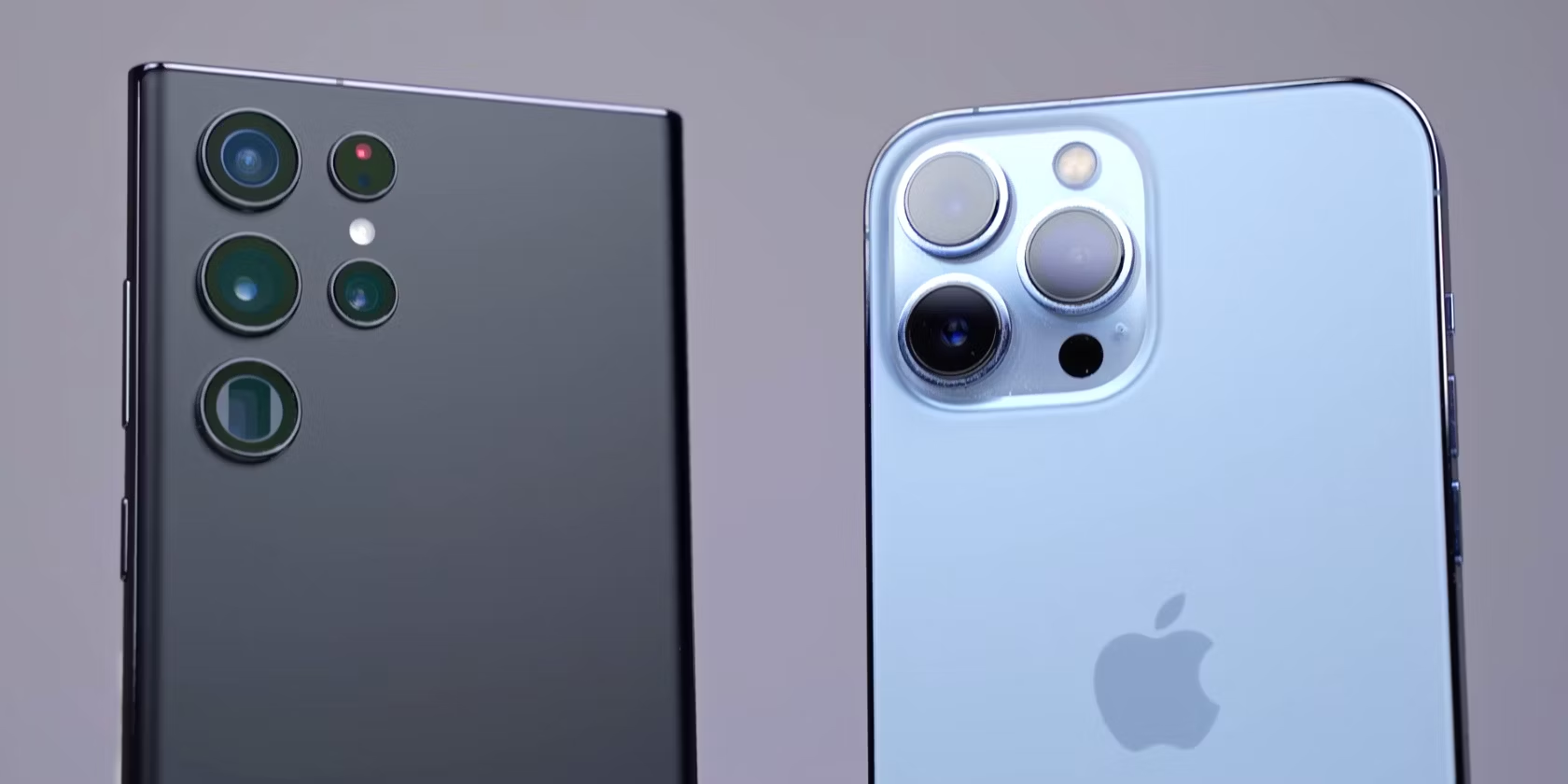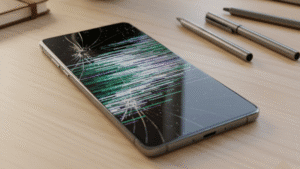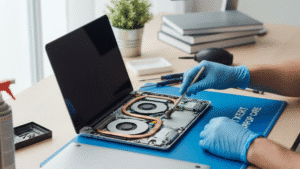Introduction:
In the world of smartphones, the rivalry between iOS and Android has been ongoing for years. Each platform has its loyal followers, advocating for its superiority in terms of user experience, features, and ecosystem. However, what if instead of choosing sides, you decided to embrace both? In this blog, we’ll delve into the reasons why owning both an iPhone and an Android mobile phone can offer a unique and versatile smartphone experience.

1. Access to Both Ecosystems:
- One of the most significant advantages of owning both an iPhone and an Android device is access to both ecosystems. Each platform has its exclusive apps, services, and features that cater to different user preferences and needs. By using both iOS and Android, you can enjoy the best of both worlds and have access to a broader range of apps and services.
2. Compatibility and Flexibility:
- Dual-platform ownership provides unmatched compatibility and flexibility, allowing you to seamlessly integrate your devices into various ecosystems and environments. Whether you’re using a Macbook, an iPad, or a Windows PC, having both an iPhone and an Android phone ensures compatibility with different platforms and ecosystems, enhancing your overall productivity and convenience.
3. Diversity in Hardware Options:
- Another compelling reason to use both an iPhone and an Android mobile phone is the diversity in hardware options available on the market. While Apple offers a limited selection of iPhone models with varying specifications and features, the Android ecosystem boasts a wide range of devices from different manufacturers, each catering to different preferences, budgets, and use cases. From flagship smartphones to budget-friendly options, having both an iPhone and an Android device allows you to explore and experience a diverse range of hardware offerings.
4. Comparison and Benchmarking:
- Owning both an iPhone and an Android phone provides an excellent opportunity for comparison and benchmarking. You can compare the performance, features, camera quality, and user experience of different devices, gaining valuable insights into the strengths and weaknesses of each platform. This firsthand experience can inform your future purchasing decisions and help you make more informed choices when upgrading your smartphone.
5. Redundancy and Backup:
- Dual-platform ownership offers redundancy and backup in case of emergencies or unexpected issues with one device. If your iPhone experiences hardware failure or software issues, having an Android phone as a backup ensures that you can stay connected and productive without interruption. Similarly, if your Android device encounters problems, you can rely on your iPhone as a backup to keep you connected.
6. Platform-Specific Features:
- Both iOS and Android offer unique platform-specific features that cater to different user preferences and needs. By using both platforms, you can take advantage of these exclusive features and experience the full range of capabilities offered by each platform. Whether it’s iMessage and FaceTime on iOS or customization options and widgets on Android, dual-platform ownership allows you to enjoy the best of both worlds.
7. Development and Testing:
- For developers and tech enthusiasts, owning both an iPhone and an Android phone is invaluable for development and testing purposes. It allows developers to test their apps and services across different platforms, ensuring compatibility and functionality for a diverse range of users. Additionally, it provides an opportunity to gain insights into the user experience and preferences of both iOS and Android users, informing future development efforts.
Conclusion:
- In conclusion, owning both an iPhone and an Android mobile phone offers a plethora of benefits and advantages that go beyond mere brand loyalty or platform preference. Dual-platform ownership provides access to both ecosystems, unmatched compatibility, and flexibility, diversity in hardware options, and opportunities for comparison, benchmarking, and redundancy. Whether you’re a tech enthusiast, developer, or everyday smartphone user, embracing both iOS and Android can enrich your smartphone experience and open up new possibilities for productivity, creativity, and connectivity. So why choose sides when you can have the best of both worlds? Consider integrating both an iPhone and an Android device into your digital lifestyle and experience the endless possibilities of dual-platform ownership.

Tech tantrums? We’ve got the fix! ????️ laptops ????️ to iPhones ????, MacBooks ???? to iPads, Your one-stop solution for all things digital. From laptops to smartphones, we mend them all! ???? Visit digimob.com.au for swift and reliable repairs. ????
Frequently Asked Questions (FAQs)
- Can I use the same apps and services on both an iPhone and an Android phone?
- While many popular apps and services are available on both iOS and Android platforms, there may be some differences in functionality or availability. Some apps may offer platform-specific features or optimizations tailored to each operating system. However, for the most part, you can use the same apps and services across both platforms, ensuring continuity and consistency in your digital experience.
- Do I need separate accounts for iCloud and Google on my dual-platform devices?
- Yes, you’ll typically need separate accounts for iCloud (Apple’s cloud service) and Google (Google’s suite of services) on your iPhone and Android phone, respectively. Each platform has its ecosystem of services, including cloud storage, email, calendar, and more, which require separate accounts for access and synchronization. However, you can often access and manage these accounts from both devices to ensure seamless integration and data synchronization.
- How do I transfer data between my iPhone and Android phone?
- Transferring data between an iPhone and an Android phone can be done using various methods, including cloud-based services, third-party apps, or direct transfer methods such as USB cables or wireless transfer protocols like Bluetooth or Wi-Fi Direct. Popular options include using iCloud and Google Drive for cloud-based synchronization or using specialized apps like Samsung Smart Switch for direct transfer between devices.
- Can I use iMessage and FaceTime on my Android phone?
- iMessage and FaceTime are proprietary services developed by Apple and are exclusive to iOS devices such as the iPhone, iPad, and Mac. Therefore, you cannot use iMessage and FaceTime on an Android phone. However, there are alternative messaging and video calling apps available on the Android platform, such as WhatsApp, Telegram, Skype, and Google Duo, which offer similar functionality across different devices and platforms.
- Will owning both an iPhone and an Android phone increase my monthly expenses?
- Owning both an iPhone and an Android phone may incur additional expenses related to device purchases, accessories, and data plans. However, the extent of these expenses depends on factors such as the cost of the devices, the type of data plans you choose, and any additional services or subscriptions you may require. By carefully managing your expenses and choosing cost-effective options, you can minimize the impact on your monthly budget while enjoying the benefits of dual-platform ownership.


